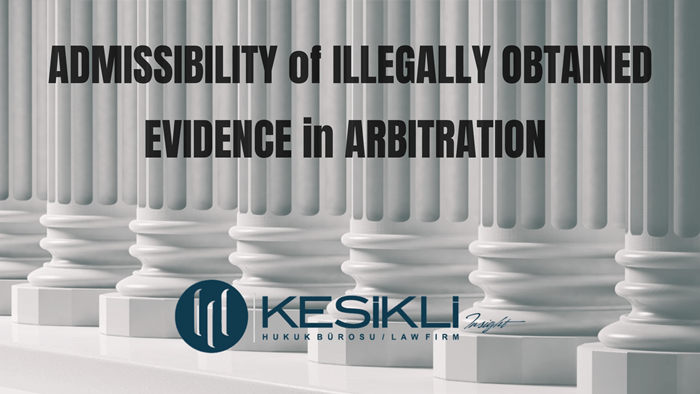The fundamental rights and freedoms of foreigners can be subject to restristionsaccording to article 16 of the Constitution of Turkish Republic. The relevant provision reads as follows: “The fundamental rights and freedoms in respect to foreigners may be restricted by law compatible with international law.” Obviously, all regulations regarding any restriction shall be based upon a “Law” and shall not violate international law standarts on the foreigners’ fundamental rights and freedoms. Moreover, art. 90 of the Turkish Constitution clearly states that the “international agreements duly put into force have the legal power of laws. No appeal to the Constitutional Court shall be made with regard to these agreements, on the grounds that they are unconstitutional. In the case of a conflict between international agreements, duly put into effect, concerning fundamental rights and freedoms and the laws due to differences in provisions on the same matter, the provisions of international agreements shall prevail.”
Entry and residency of foreigners in Turkey are regulated under the Law on Foreigners and International Protection (Nr. 6458; OG: 11.04.2013). In art 3/1/ü of LFIP, a foreigner is defined as “a person who does not have citizenship bond with the Republic of Turkey”. A foreigner shall enter into Turkey and reside therein legally, with a valid passport or travel document.
The Law with its art. 7 designates “Foreigners who shall be refused to enter into Turkey”. Foreigners who do not hold a passport, a travel document, a visa or, a residence or a work permit or, such documents or permits have been obtained deceptively or, such documents or permits are false; foreigners whose passport or travel document expires sixty days prior to the expiry date of the visa, visa exemption or the residence permit and foreigners who shall be refused to be granted Turkish visa are refused to enter into Turkey in this context.
Foreigners wishing to stay in Turkey for up to ninety days shall obtain a visa that indicates the purpose of their visit. However, as a general foreigners law principle, visas shall not confer an absolute right of entry. On the other hand, foreigners who have a valid residence or work permit on the date of entry are exempt from visa requirement.
According to art. 19 of LFIA, foreigners who would stay in Turkey beyond the duration of a visa or a visa exemption or, [in any case] longer than ninety days should obtain a residence permit. The residence permit shall become invalid if not used within six months.
An application for residence permits shall be lodged through the Turkish Consulate in the foreigner’s country of citizenship or where the applicant legally stay. The Turkish Consulate shall convey the residence permit applications, together with their remarks, to the Directorate General of Migration Management.
It is worth to mention that residence permits shall be issued separately for every foreigner depending on the purpose of stay, [in any case] for a period sixty days shorter than the validity period of the passport or travel document. Moreover, according art 27/1 of LFIP, a valid work permit as well as work permit exemption confirmation document issued pursuant relevant legislation shall be considered as a residence permit.
Regarding the evaluation of the duration as a condition to be granted a residence permit, the Law contains a provision which defines an interruption of residence in Turkey. In this context, “any stay outside of Turkey exceeding a total of six months within one year or a total of one year within the last five years for reasons other than compulsory public service, education or health shall be considered interruption of residence.”
A transfer or conversion among different residence permits is also possible, in cases where the reason, on the grounds which the residence permit is issued, is no longer valid or a different reason appears. Consequently, the foreigner may lodge an application for a residence permit which conforms to the new reason for his/her stay.
In Turkish Foreigner Law, there are six kind of residence permits which are listed in article 30 of LFIP: a) short-term residence permit; b) family residence permit; c) student residence permit; d) long-term residence permit; e) humanitarian residence permit; f) victim of human trafficking residence permit. The short-term residence permit may especially be granted to foreigners who arrives to conduct scientific research; owns immovable property in Turkey; establishes business or commercial connections; arrives to attend educational or similar programmes as part of student exchange programmes or agreements to which the Republic of Turkey is a party to; wishes to stay for tourism purposes; intends to receive medical treatment, provided that they do not have a disease posing a public health threat; attends an education programme, research, internship or, a course by way of a public agency.
Also, Turkey welcomes foreigners to apply for citizenship by investment through fixed capital or real estate or by providing employment or through investments in Turkey. With the recent changes in the citizenship law legislation, Republic of Turkey started to grant citizenship to individuals who invest in Turkey without any other requirement including minimum residence. In this context, the residence permit provisions are also regulated and adapted to the citizenship law legislation. Thus, foreigners - and their foreign spouses, his and her minor children or foreign dependent children.- who do not work in Turkey but will make an investment within the scope and amount that is determined in the art. 20 of the Regulation on the Execution of Turkish Code of Citizenship (Nr. 2010/139) may be granted a short-term residence permit.
Short-term residence permits shall be issued for maximum two year. The validity of short term residence permits for foreigners who invest in Turkey may exceed the two years period. However, in any case, the residence permit period can not exceed 5 years for residence permit granted to foreigners who invest in Turkey.
According art. 32 of LFIP, the following conditions shall apply when issuing short-term residence permits: a) to apply, claiming one or more of the reasons stipulated in art. 31 and submit supporting information and documents regarding the application; b) not to fall within the scope of art. 7; c) to live in accommodation conditions that conform to general health and safety standards. Moreover, the foreigner who apply for a short-term residence permit shall present criminal record certificate issued by the competent authorities in their country of citizenship or legal residence, upon request and submit information regarding his/her address of legal stay in Turkey.
@Ömer Kesikli
Let's Get Connected!



